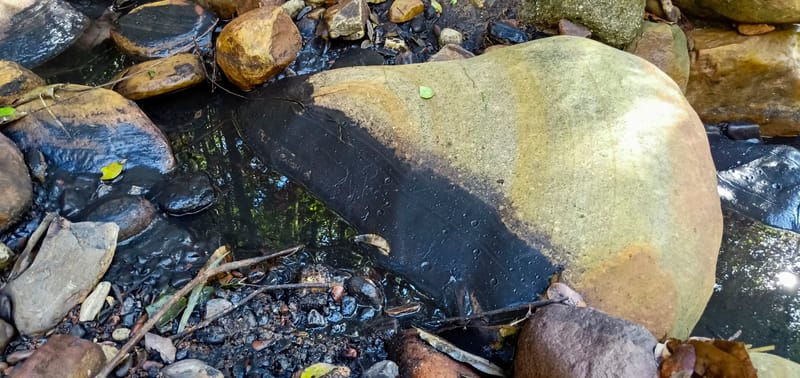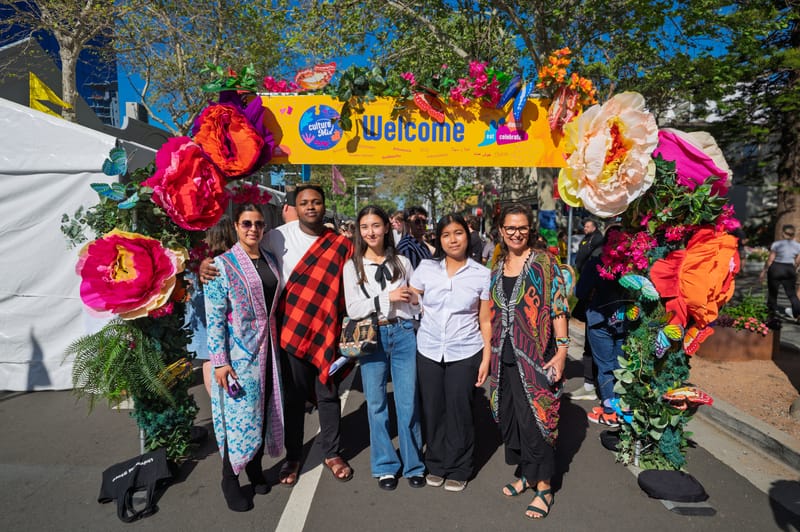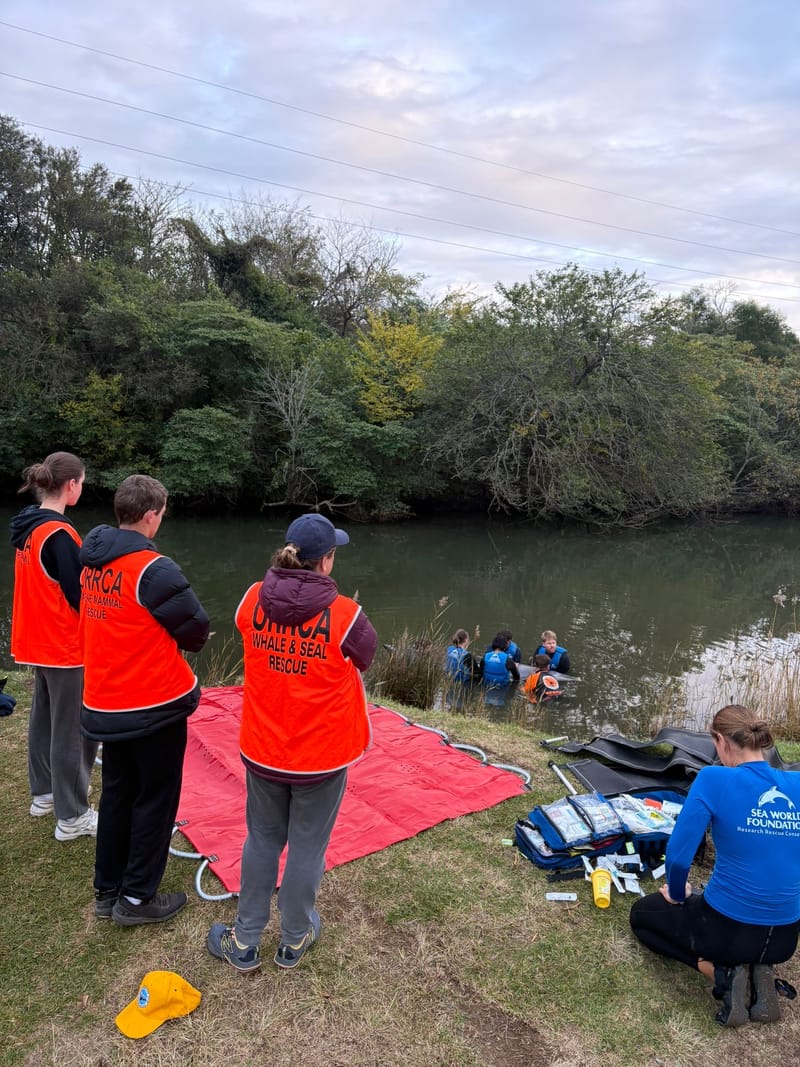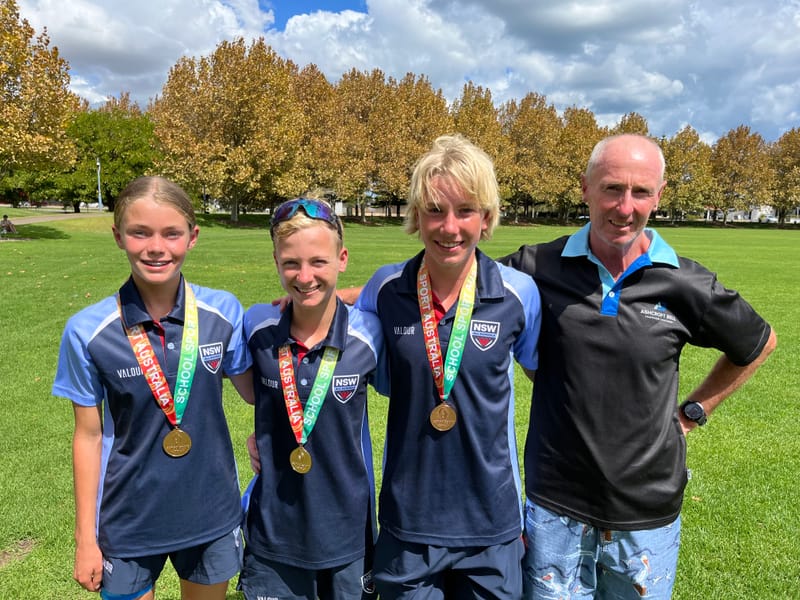'Perfect for him' – meet the police officer turned funeral director
'Last responder' Wes Bas tells 2515 mag how he came to be a funeral director.
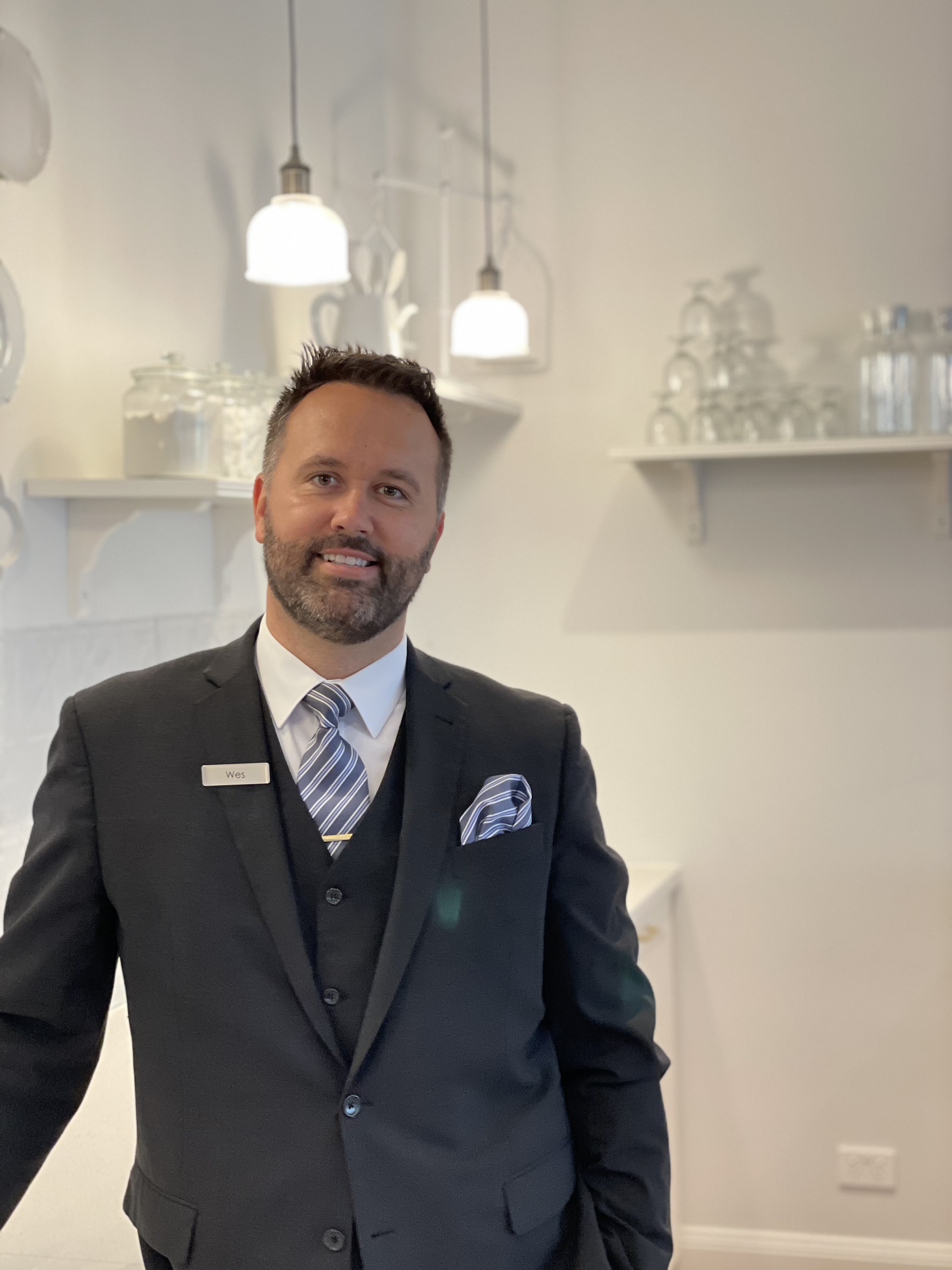
Wes Bas tells 2515 how he came to be a funeral director.
Funeral director’ is not one of those jobs a child tends to idealise – unless she’s the niece of Wes Bas, in which case role-playing the final farewell will prove a hit in Kindy class.
“My little niece had a careers day as part of her kindergarten curriculum,” Wes says. “There were kids dressed up as policemen, all kinds of things – she went as a funeral director, wearing this little grey three-piece kids suit I’d found on Ebay.”
Wes is the funeral director at H.Parsons Bulli, a job that involves the kind of community service we rarely acknowledge.
It’s a role that is part ‘events manager’, part ‘last responder’.
Wes works 8am to 5pm, with on-call shifts every few weeks. Day-to-day tasks involve preparing chapels and cars, arranging funerals with families and conducting funerals.
While people have become desensitised to death on TV and in computer games, Wes says in real life even basic discussions like ‘cremation or burial?’ are often avoided.
“Always the taboo has been opening up to your family and talking about that. And that hasn’t changed,” he says.
“There’s probably some kids that would know that Santa Claus isn’t real before they learned about death – because it’s something that we, as a society, still find very taboo.
“Yet it’s part of life.”
For Wes, the role of funeral director was less a childhood dream than the next step in a career of community service. His family are longtime locals (“mum’s from the Hunt family, which is a fairly well known Thirroul family, they used to own an orchard at the top of town”) and Wes went to Waniora primary and Bulli high.
“I always wanted to do something in the public service – in school, I was in the air force cadets.”
His first career was with NSW Police.
“I was in the police force for about 12 years. Within that role, I actually did a little bit of the role I’m doing now, in that I used to work for the Protocol and Awards Unit. We used to look after police funerals. So I was involved in quite a large number of police funerals, and some very big ones.
“When I left the police force, I floated around for a little bit, doing different things.”
This included running his own handyman business, then spending two years travelling around Europe via boat, navigating its canals and rivers in a Dutch steel cruiser he bought in France.
“Coming back, I saw the funeral director role advertised and I thought, why not, give it a go.
“I think when you come from a role like the police force, you’re drawn to careers that aren’t your standard run of the mill jobs, something that is a bit unusual is a good fit.”
Family and friends approved of his second career choice. “Everyone was, ‘ahh, perfect for him, perfect for him’. I think knowing that I’m a little bit of an out-there kind of personality – not unusual, maybe a bit eccentric.
“From the day I started, I’ve enjoyed it.”
Demand for ‘individual’ funerals is growing.
“The trend now is to do something different… to have that Instagram-worthy kind of component. Already there are coffins where you can choose your own design.
“We’ve had some local artists that we’ve had their art put onto the coffins.
“As quite a traditional business, we’ve got to move with the times. The one thing I got told when I started this job is, we don’t say no.
“Being a coastal town, we’ve got quite a big surfing community. We’ve put sand in front of the chapel to make it look like a beach scene; the funeral directors had to wear Hawaiian shirts.
“We’ll get on board when a family wants to do something special. To me, they’re the best funerals I’ve put together. I’ve had surf boards displayed …
“I had one gentleman who was the sweeper on the surf boats, so they wanted to attach one of the oars to the coffin.
“The amount of times that we’ve had a service here and the family has said, ‘Look, do you mind going past Sandon Point [in the hearse], just for them to do one last trip to check out the surf?’
“We had one that did a lap of Ryan’s Hotel.
“Things like that are nice.”
H.Parsons was founded in the Illawarra in 1893.
It has chapels in Wollongong, Warilla, Dapto and Bulli. “One of the things that drew me to working for Parsons,” Wes says, “is it’s a family-owned business, and family-owned means that it’s all staying in the Illawarra; any profits are put back into the community.”
This ranges from hiring locals to supporting local business (such as Poppy’s florist in Thirroul) and sponsoring local sports teams.
Wes says people are fascinated by his role, but it’s a far cry from the cliches of popular culture.
“People have that idea in their heads maybe about what a funeral director is supposed to look like…
“Of course, I’m very upset we don’t have the top hat any more,” he says, laughing.
Wearing a dark suit to work remains industry gold standard, however.
“Plenty of people get buried in shorts, a T-shirt and a pair of thongs, but I think they still expect their funeral director to look like a funeral director. You want them to look the part to farewell your loved one.”
Wes started his role a year ago, shortly before Covid hit.
Fortunately H.Parsons was already set up for webcasting, so was able to adjust to restrictions, for example, when only 10 people could attend a funeral. “It’s a two-edged coin,” Wes says. “I found a lot of those services were some of the most intimate and meaningful.”
Unlike counterparts overseas, H.Parsons has not had to deal with devastating death tolls. In fact, from mid-May to the end of October 2020, provisional mortality statistics from the Australian Bureau of Statistics showed deaths were below the historical baseline average.
In the past year, he has acquired an enormous amount of knowledge about traditional rites, some forgotten by younger generations. Wes has directed funerals for families of many faiths – Catholic, Macedonian, Greek Orthodox, Anglican, Presbyterian, Baha’i, Brethren, Hindu and Islamic.
Outside of work, Wes enjoys spending time with family, and has signed up to volunteer with the SES. “I just enjoy being with people.
“I’ve always enjoyed interacting with the community, which is why I was a police officer. It is nice now that the community wants to, for the most part, they want to interact back.
“Whereas sometimes in my previous role, yeah, they didn’t always want to see me.”
Working with the bereaved isn’t about taking on the burden of loss.
“Sympathising, you’re taking on the pain of the people or the grief of the people who have come to see you, and I think, in a way, that’s stealing their grief – but to empathise, to understand is important.
“My job isn’t to take on a family’s grief. My job is to provide them with the best service I can possibly provide them in saying goodbye to their loved one.
“There have been good parts to that person’s life, where they’ve been able to laugh, have joy. So why wouldn’t you want to remember that?
“You’d be surprised how often I’ve sat in this room and it’s just been raucous laughter for most of the arrangement, and families are here going, ‘You must think we’re really weird.’
“And I’m like, ‘No, this is normal.’
“Especially when you’ve got families where mum or dad has passed away in their 90s. ‘Celebration of life’ is such a cliched term, but it really is true.
“What we’re doing most of the time is a celebration of life.”
H.Parsons Bulli is at 278 Princes Highway, call (02) 4284 3163, email info@hparsons.com.au

